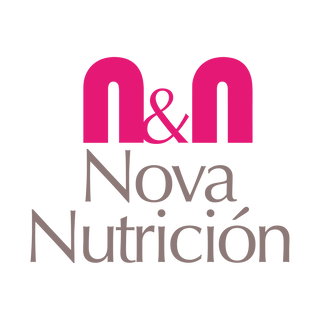Currently, atherosclerosis is one of the most common and worrying diseases worldwide. This condition arises when the arteries become clogged due to the buildup of fatty plaques, thereby limiting blood flow and leading to serious consequences such as heart attacks and strokes. Therefore, it is essential that health professionals are aware of the latest research in this field and know the most effective tools to prevent and treat atherosclerosis.
In this context, two active components stand out: Pycnogenol® and Centella asiatica, which prove to be effective in slowing the progression of atherosclerotic plaque. Both substances are natural extracts that have been the subject of numerous scientific studies in recent years, with promising results.
In the case of Pycnogenol®, this French maritime pine bark extract contains a significant amount of antioxidants and anti-inflammatory compounds. Studies have revealed that Pycnogenol® can reduce inflammation and improve endothelial function, resulting in better blood circulation and a reduced risk of cardiovascular diseases.
A study, published in the journal Phytotherapy Research, analyzed the impact of Pycnogenol® in patients with peripheral arterial disease, observing a significant improvement in blood circulation and a reduction in pain and other symptoms after 12 weeks of treatment with 100 mg of Pycnogenol® up to date.
As for Centella asiatica, this medicinal plant native to Asia, used for centuries in traditional medicine, has been the subject of several studies that explore its properties to prevent and treat atherosclerosis, with promising results.
In a study published in the journal Angiology, the effect of a Centella asiatica extract was evaluated in patients with carotid atherosclerosis, observing a significant reduction in the thickness of atherosclerotic plaque in the carotid arteries after six months of treatment with 60 mg of extract. of Centella asiatica per day.
Another study, published in the journal Phytotherapy Research, examined the effect of an extract of Centella asiatica in patients with type 2 diabetes and atherosclerosis, observing a significant reduction in total cholesterol and LDL cholesterol, as well as an improvement in endothelial function after eight weeks of treatment with 750 mg per day.
In conclusion, both Pycnogenol® and Centella asiatica are positioned as valuable tools to prevent and treat atherosclerosis. Scientific studies support its effectiveness in improving blood circulation, reducing inflammation and slowing the progression of atherosclerotic plaque. It is crucial that healthcare professionals are aware of this research and consider the use of these substances as part of comprehensive treatment for patients with atherosclerosis.
At Nova Nutrición we strive to offer solutions for health, and thanks to our product Arterial Defense , we have combined the two extracts mentioned above, take a look!
References:
-
James JT, Dubery IA. Pentacyclic triterpenoids from the medicinal herb, Centella asiatica (L.) Urban. 2009;14(10):3922-41.
-
Incandela L, Belcaro G, Nicolaides AN, et al. Modification of the echogenicity of femoral plaques after treatment with total triterpenic fraction of Centella asiatica : a prospective, randomized, placebo-controlled trial. 2001;52 Suppl 2:S69-73.
-
Cesarone MR, Belcaro G, Nicolaides AN, et al. Increase in echogenicity of echolucent carotid plaques after treatment with total triterpenic fraction of Centella asiatica : a prospective, placebo-controlled, randomized trial. 2001;52 Suppl 2:S19-25.
-
Incandela L, Cesarone MR, Cacchio M, et al. Total triterpenic fraction of Centella asiatica in chronic venous insufficiency and in high-perfusion microangiopathy. 2001;52 Suppl 2:S9-13.
-
Belcaro G, Maquart FX, Scoccianti M, et al. TECA (Titrated Extract of Centella asiatica ): new microcirculatory, biomolecular, and vascular application in preventive and clinical medicine. To status paper. Panminerva Med. 2011;53(3 Suppl 1):105-18.
-
Ivanov V, Ivanova S, Kalinovsky T, et al. Plant-derived micronutrients suppress monocyte adhesion to cultured human aortic endothelial cell layer by modulating its extracellular matrix composition. J Cardiovasc Pharmacol. 2008;52(1):55-65.
-
D'Andrea G. Pycnogenol®: a blend of procyanidins with multifaceted therapeutic applications? 2010;81(7):724-36.
-
Rohdewald P. A review of the French maritime pine bark extract (Pycnogenol®), a herbal medication with a diverse clinical pharmacology. Int J Clin Pharmacol Ther. 2002;40(4):158-68.
-
Belcaro G, Dugall M, Hosoi M, et al. Pycnogenol ® and Centella asiatica for asymptomatic atherosclerosis progression. Int Angiol. 2014;33(1):20-6.
-
Luo H, Wang J, Qiao C, et al. Pycnogenol® attenuates atherosclerosis by regulating lipid metabolism through the TLR4-NF-kappaB pathway. Exp Mol Med. 2015;47:e191.
-
Gu JQ, Ikuyama S, Wei P, et al. Pycnogenol®, an extract from French maritime pine, suppresses Toll-like receptor 4-mediated expression of adipose differentiation-related protein in macrophages. Am J Physiol Endocrinol Metab. 2008;295(6):E1390-400.
-
Fitzpatrick DF, Bing B, Rohdewald P. Endothelium-dependent vascular effects of Pycnogenol®. J Cardiovasc Pharmacol. 1998;32(4):509-15.
-
Enseleit F, Sudano I, Periat D, et al. Effects of Pycnogenol® on endothelial function in patients with stable coronary artery disease: a double-blind, randomized, placebo-controlled, cross-over study. Eur Heart J. 2012;33(13):1589-97.
-
Hu S, Belcaro G, Cornelli U, et al. Effects of Pycnogenol ® on endothelial dysfunction in borderline hypertensive, hyperlipidemic, and hyperglycemic individuals: the borderline study. Int Angiol. 2015;34(1):43-52.
-
B elcaro G, Dugall M, Ippolito E, et al. Pycnogenol ® and Centella Asiatica for preventing asymptomatic atherosclerosis progression into clinical events. Minerva Cardioangiol. 2015 Oct 27.
-
Belcaro G, Ippolito E, Dugall M, et al. Pycnogenol ® and Centella asiatica in the management of asymptomatic atherosclerosis progression. Int Angiol. 2015;34(2):150-7.



